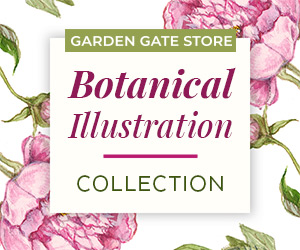- What is Mushroom Compost?
- Benefit #1: Improves Soil Quality
- Benefit #2: Provides Essential Nutrients
- Benefit #3: Increases Microbial Activity
- Benefit #4: Helps Control Pests and Diseases
- Benefit #5: Environmentally Friendly
- Benefit #6: Easy to Use
- Benefit #7: Cost-Effective
- Benefit #8: Versatile Use
- Benefit #9: Odorless
- Benefit #10: Increases Crop Yield
- How to Get Started with Mushroom Compost
- Conclusion
- Related Posts
Mushroom compost, alternatively known as mushroom soil or mushroom manure, stands out as a nutrient-rich organic material ideal for plant growth. Derived from the byproducts of mushroom farming, this compost is a valuable addition to gardens and farms alike. In this blog, we delve into the top 10 advantages of incorporating mushroom compost into your gardening practices.
From enriching soil fertility to promoting robust plant development, the benefits are diverse. Discover how mushroom compost enhances water retention, encourages microbial activity, and fosters a thriving ecosystem in your growing space. If you’re curious about harnessing the potential of this organic resource, read on to explore the myriad benefits of mushroom compost and gain insights on seamlessly integrating it into your gardening routine.
What is Mushroom Compost?
Mushroom compost is a type of organic material that has been used for centuries as a natural fertilizer. It’s made from a combination of straw, horse manure, and other organic materials that have been used to grow mushrooms. The process of mushroom farming creates a perfect environment for beneficial microorganisms to thrive, making the compost rich in nutrients and minerals.
Benefit #1: Improves Soil Quality
One of the main benefits of using mushroom compost is that it improves the quality of soil. This compost is high in organic matter, making it an excellent addition to any type of soil. It helps to break up clay soils and improves the water retention in sandy soils, creating a balanced environment for plants to grow.
Benefit #2: Provides Essential Nutrients
Mushroom compost is packed with essential nutrients that are needed for healthy plant growth. It contains high levels of nitrogen, phosphorus, potassium, and other micronutrients that are essential for plant growth. These nutrients are slowly released as the organic materials in the compost decompose, providing a steady supply of nutrients to plants.
Benefit #3: Increases Microbial Activity
As mentioned earlier, mushroom compost contains beneficial microorganisms that help break down organic matter and release nutrients into the soil. These microbes also help to suppress harmful pathogens, creating a healthier environment for plants to grow.
Benefit #4: Helps Control Pests and Diseases
Using mushroom compost can help control pests and diseases in your garden. The beneficial microorganisms in the compost work together to suppress disease-causing organisms, reducing the risk of plant diseases. It also releases substances that repel insects, making it an effective natural pest control method.
Benefit #5: Environmentally Friendly
Mushroom compost is an environmentally friendly option for fertilizing your garden. It’s made from natural and renewable materials, reducing the use of synthetic fertilizers that can harm the environment. Additionally, it helps to prevent soil erosion and promotes healthy soil biodiversity.
Benefit #6: Easy to Use
Using mushroom compost is incredibly easy. It can be applied directly to the soil or mixed with existing soil, making it a convenient option for gardeners of all levels. The slow-release nutrients also reduce the need for constant applications, saving time and effort in maintaining your garden.
Benefit #7: Cost-Effective
Compared to other types of organic fertilizers, using mushroom compost with a compost starter is relatively affordable. It’s easy to make or readily available in most garden centers and can also be purchased in bulk for larger gardens or farms, making it a cost-effective option for organic fertilization.
Benefit #8: Versatile Use
Mushroom compost is not only suitable for outdoor gardening but can also be used indoors for potted plants and indoor gardens. Its slow-release nutrients make it an ideal option for houseplants.
Benefit #9: Odorless
Unlike other types of manure-based composts, mushroom compost is virtually odorless. This makes it a more pleasant option to use in your garden and reduces the risk of attracting pests or wildlife.
Benefit #10: Increases Crop Yield
Last but not least, using mushroom compost can significantly increase your crop yield. With its high levels of nutrients and beneficial microorganisms, plants are able to thrive and produce a bountiful harvest. It’s an excellent option for growing fruits and vegetables organically.
How to Get Started with Mushroom Compost
Now that you know the numerous benefits of using mushroom compost, you might be wondering how to get started with it. Here are some tips to help you incorporate mushroom compost into your gardening routine:
- Purchase high-quality mushroom compost from a reputable supplier or make your own using a composter.
- Before applying the compost, make sure that it’s properly aged and has cooled down to avoid burning your plants.
- Spread a layer of compost on top of the soil or mix it into the existing soil.
- Water the area thoroughly after applying the compost to help it settle into the soil.
- Continue to add mushroom compost every few months to maintain healthy and nutrient-rich soil for your plants.
Conclusion
Using mushroom compost has numerous benefits for your garden. It improves soil quality, provides essential nutrients, increases microbial activity, helps control pests and diseases, and is environmentally friendly. It’s also a versatile, odorless option to increase the health of your plants. If you haven’t already tried using mushroom compost in your garden or farm, now is the perfect time to get started!
















